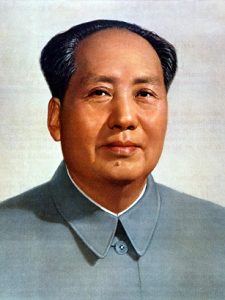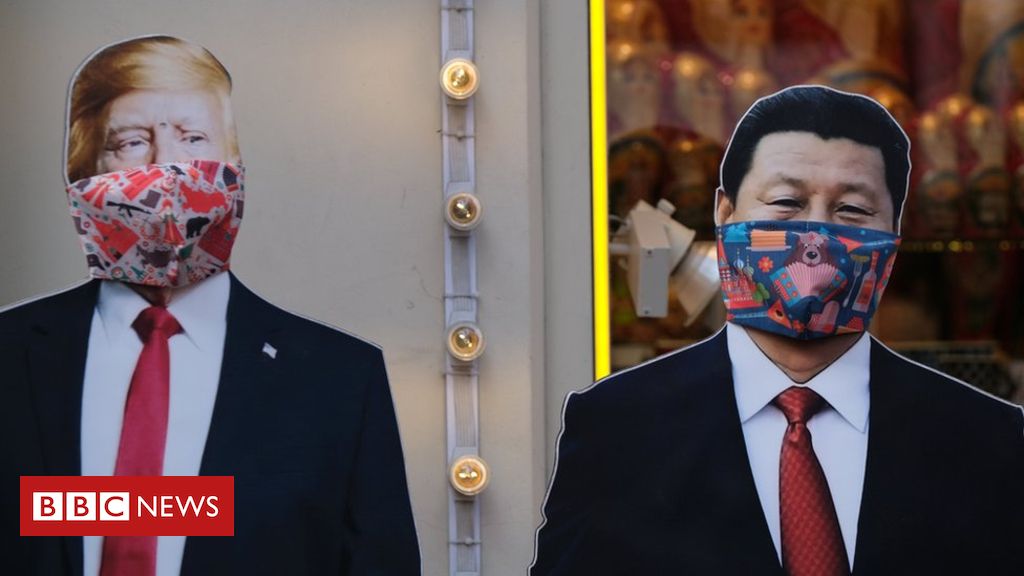By Ayomide Ogunsakin
Introduction
Everybody loses. These were the words of Kristalina Georgiera; the Managing Director of the International Monetary Fund (IMF) at the organization’s last meeting in 2019. Her assertion was made with regards to the negative impacts of the ongoing US-China trade war largely being felt by world economies. This begs the question, how do trade wars incur collateral damage? Attempting to provide answers to this question at the inception of this paper would however amount to jumping the gun which fortunately, is not going to be case. Thus, it is only fitting that a succinct but sufficient introduction to the terms central to this discourse be given.
Definition of Terms
Principally, the focus here is on trade which simply involves buying and selling of products or services. From a wider perspective however, it is important to recognize that trade is not merely a concept privy to two individuals but one that extends among world nations. This is what births the international trade which goes on in the global sphere. Owing to the fact that there are over 190 countries in the world with diverse resources and varying levels of development, trade relations become a necessity in order to avoid economic isolation and ensure the progress and development of these nations. Global politics as a concept quite simply addresses the political and economic connections between world nations.
What then is a trade war? There is no gainsaying the fact that from time immemorial, nations have fought wars against themselves. However, unlike normal wars which involve physical combat or use of ammunitions and biological weapons, a trade war has an economic outlook as it employs the use of quotas and tariffs on imports from a nation. The war however does not fully start until the affected nation(s) fires back with retaliatory measures, resulting in abysmal actions where the involved countries go back and forth as is the case with the United States and China, possibly going on to affect other aspects of the economy.
It is worthy of note that these restrictions on export goods from outside countries under normal circumstances may actually act as protective measures for a country’s local or infant industries by securing them greater patronage. But what happens when these restrictions rather than being protective are actually political? When a nation’s desire to gain political might on the strength of a thriving economy or its leader’s political ego, is the driving force? This exposes how the economic stance of a country affects its political might or better put, it underscores the “polieconomic” nature of international trade.
Using the ongoing US-China trade rift as a case study, this monograph would embark on a clear perusal of the origin of trade wars, the historical backgrounds of both countries before they came to be the leading world powers they are today, the interplay between international trade and politics, as well as the place of the World Trade Organization (WTO) regulations guiding inter trade relations. This is essentially to examine the impact of this war, where it leaves the rest of the world, Africa particularly, and ultimately reach a conclusion on whether there can be winners or everyone indeed loses.
How Did We Get Here?
To understand the present and have better chances at predicting future occurrences, it is important to know where we are coming from; a history of our tomorrow, as Yuval Noah Harari put it. To this effect, trade wars started with the Anglo-Hanse conflicts which lasted between the 14th and 17th centuries, the Franco-Italian which spanned through the 1980s- 1990s and particularly the Hawley-Smoot tariff war initiated by the US in 1929. In all these conflicts, there was a similar underlying motive, that higher tariffs would increase government revenues as well as stronger protection against highly competitive overseas suppliers of goods being produced locally in the steel, farming and textile industries. With regards to the Hawley-Smoot conflict, the American Congress under the Hoover administration introduced an Act which increased tariffs on about 20,000 imported agricultural goods in an attempt to strengthen the US economy during the Great Depression of the 1930s.
This move however proved to be counter-productive because it forced global trade down by 65%, increased food prices, and even made it difficult for the American manufacturers who were to be protected by the policy, to remain in business. It further attracted retaliatory responses on U.S. exports in Canada, Europe and other nations, causing farm exports to fall by a drastic level and thereby exposing how dangerous such protectionist policies can be not just to the country that initiates it, but also to the global economy at large; economists have further blamed the Act for worsening the Great Depression and contributing to the start of the Second World War in 1939. It was in light of these catastrophic results that the United Kingdom, the U.S and Canada formed the General Agreement on Tariffs and Trade (GATT) – now replaced by the WTO- to avoid such occurrences in future.
The Rise of the Two Giants
From a historical standpoint, it is clear that America and China have different political/economic ideologies; Capitalism and Communism respectively. However, both countries have not always been as powerful as they are today. American Capitalism to begin with, can be traced to the period of American slavery, and is attributed to the plantation owners at the time. The white enslavers and entrepreneurs of plantations on American soil aggressively expanded their operations to capitalize on profit and in doing this, went further to buy more enslaved workers and invest in operations that would yield large turnouts. The big shots at the time definitely needed individuals to do the menial jobs for meager pay.
They understood that their profits doubled when they were able to squeeze out maximum efforts from each of their enslaved employees and then found ways to control their workers. Evidently, this modern capitalist economy relied on slavery and created more opportunities to profit from slave labor. Till date, America thrives off capitalism especially considering the fact that the richest 1 percent of Americans own and control about 40 percent of the country’s wealth. This gives an insight to the motive behind the America First policy implemented under the current administration of Trump, who is also business oriented.
China on the other hand suffered a period of civil strife, poverty, encroachment of foreign powers and corrupt nationalists until the revolution of Mao Tse Tung. Chairman Mao as he was otherwise called established the Chinese People’s Republic under which he launched several campaigns to transform a largely illiterate and agriculturally inclined nation into the modern, industrialized state it still is today.

With Chairman Mao’s revolution came tangible economic progress for China and a change in the country’s foreign affairs such that the inequalities and humiliations China had previously faced in the hands of the West were brought to an end.
Moving on, the clash of these two titans goes back to the early 2000s when American economists and politicians complained about the US trade deficit with China caused by currency undervaluation. They also accused Chinese trade and exchange rate policies of being unfair and designed only to promote Chinese exports and obstruct imports. Although the relationship between both countries continued to be managed, the straw that broke the camel’s back was in March 2018 when Trump initiated the war by announcing a 25% tariff on imported steel, affecting China mostly among other countries. The major concerns for this were that China’s booming trade activities affected job creation in the US and that China sought to weaken the national security and international standing of the US- a political scare. China in turn retaliated by imposing tariffs worth 2.4 billion on US exports. With this, the ball was set in motion and neither of the countries has shown any desire to kowtow.
The Interplay between International Trade and Politics
It is a fact that the body of international law cannot be divorced from politics. The reason for this is that laws governing the relationships between nations are primarily made for political reasons, including fostering diplomacy and strengthening world peace. True politics however comes to play when some of these rules are flouted by the key players without suffering due sanctions. In the same vein, inter trade relations and policies are mostly made in the individual political interest of the countries involved. The World Trade Organization (WTO) regulation for example, encourages trade liberalization, the elimination of all forms of trade barriers or limitations and prohibits any form of retaliation between members.
America and China despite being parties to these regulations have clearly acted in breach of them but the international community still hasn’t imposed any sanctions on them because they quite frankly, call the shots. Their strong political stance seemingly attracts a freewill to act as they please, disregarding its impacts on the rest of the international community. A further display of politics is the fact that studies have proven the retaliatory actions taken to have been strategically targeted at counties with more Republican voter base. This political cost against the Republican Party was aimed at changing the U.S trade policy and had the tendency to cause change of government policies or even political power. Essentially, a strong economy breeds higher political might and countries involved in the war would stay at loggerheads, trying to prove whose economy is better off.
Effects of the war on U.S and China
Although past trade wars resulted in the birth of new agreements which allowed for trade liberalism such as the Reciprocal Trade Agreement Act instituted by the U.S in 1934 and the General Agreement on Trade and Tariffs earlier referenced, there seems to be no positive outcome of the war being prolonged due to its ripple effects. The most adverse of them all is that it culminates in a strained trade relationship between both parties. It would not be far-fetched to conclude that the economic relationship between U.S and China permanently altered because for instance, a great deal has changed between Washington and Beijing since the implementation of Trump’s “America First” policy. Before this, both countries had grown dependent on each other; American manufacturers depended on low-wage Chinese workers, and China in turn invested about 140 billion dollars in the U.S since the year 2000.
The US violation of the North America Free Trade Agreement (NAFTA) by imposing tariffs on Mexico and Canada has also breached the trust reposed in the US and emphasized its unpredictability which would only scare away future trade opportunities. In early 2018, Trump affirmed that, “trade wars are good and easy to win.” Thus, he has resorted to tariffs more freely than any other American leader since the 1930s but considering the jeopardy that trade protectionism caused America then; one would think it more reasonable to have sought means of preventing history from repeating itself by instituting policies encouraging free trade instead. As it stands now, the tariffs have really hurt the US economy seeing as there has been a raise in prices of automobiles, computer chips, beer, heavy equipment and even companies’ costs of production which has led to a cut in jobs available.
Impacts on the Rest of the World
As has already been established, the war inevitably severs the ties between the parties involved, but study has shown that it alternatively presents opportunities to non-warring parties by creating an avenue for progress. The European Union and Japan for instance, have profited since the U.S steel tariffs pushed them to sign a free trade agreement. The EU is further estimated to secure about $50 billion from Chinese exports to the US and $20 billion from US exports to China. Mexico also stands to benefit about $27 billion of the US-China trade which represents about 6% of its total exports but these figures are no match for general trade in the global sphere which went as high as $17 trillion in 2017 and now risks the possibility of crashing. In addition to a possible fall in global trade, we also risk a disruption of the global supply chains if the war persists because it would have a domino effect on other countries in the value supply chain.
Africa for example, is not a direct target of the war but has already been largely affected. On the positive side, there have been a lot more trade relations between China and most African countries. Since late 2018, China has sought further trade integration with Africa and there have been more trade imports of crude oil particularly from Angola and other countries to make up for the reduced imports of natural gas from the US, so much that the crude oil imports from Africa could increase by 30%. There would also be increased investments, loans and grants to the continent and this can aid steps taken towards self-reliance and economic diversification. Despite these opportunities, the war is bound to do far more harm than good to the economies of African nations. It has already caused drops in commodity prices, local currencies and major stock exchange markets in the continent, scaring away investors. An estimate carried out by the African Development Bank (AfDB) further shows that trade tensions could lead to a 2.5% drop in the Gross Domestic Product (GDP) of resource-rich nations and a 1.9% drop for oil exporters by 2021. The IMF also predicts that by 2021, Africa’s GDP growth in general would be reduced by 1.5%.
With China as Africa’s top trading partner, a predicted slowdown in the Chinese economy would likely hinder commodity exports, government revenues and even the foreign loans which the economies of most African nations depend on. Being at the end of the supply chain, African nations have almost no say because of the general weaknesses of our economy. Nonetheless, it is left to the African governments and stakeholders in business to turn their lemons into lemonade by seizing every opportunity they get. This may include strengthening their economic platforms and formulating policies to this effect, increasing investments and filling up the export gaps in global trade so as to become part of the global supply chain.
Conclusion
The global economy of today is one of increasing interdependence but this war has already started to have significant repercussions on international trade and will most likely lead to an economic recession. Walter Block put it best when he said, “Protectionism is a misnomer. Free trade is the only philosophy compatible with international peace and prosperity.” Trade conflicts have a spillover effect with severe consequences for everyone, so much that it would hinder efforts to cooperate for solutions to global challenges such as the ongoing COVID-19 pandemic. Even the Sustainable Development Goals (SDGs) adopted by the international community in 2015 may not be fully actualized and this would undoubtedly be the most damaging effect because in this regard, nobody will win. The war must therefore be resolved before it wreaks even more damage.

Ayomide Ogunsakin is a 300 level law student of Obafemi Awolowo University (OAU), Ile-Ife, Osun State.
Dear readers, we really need your support to keep on serving you with authoritative, truthful, and juicy stories everyday. For your support, please reach out to the editor @gavelinternational66@gmail.com

